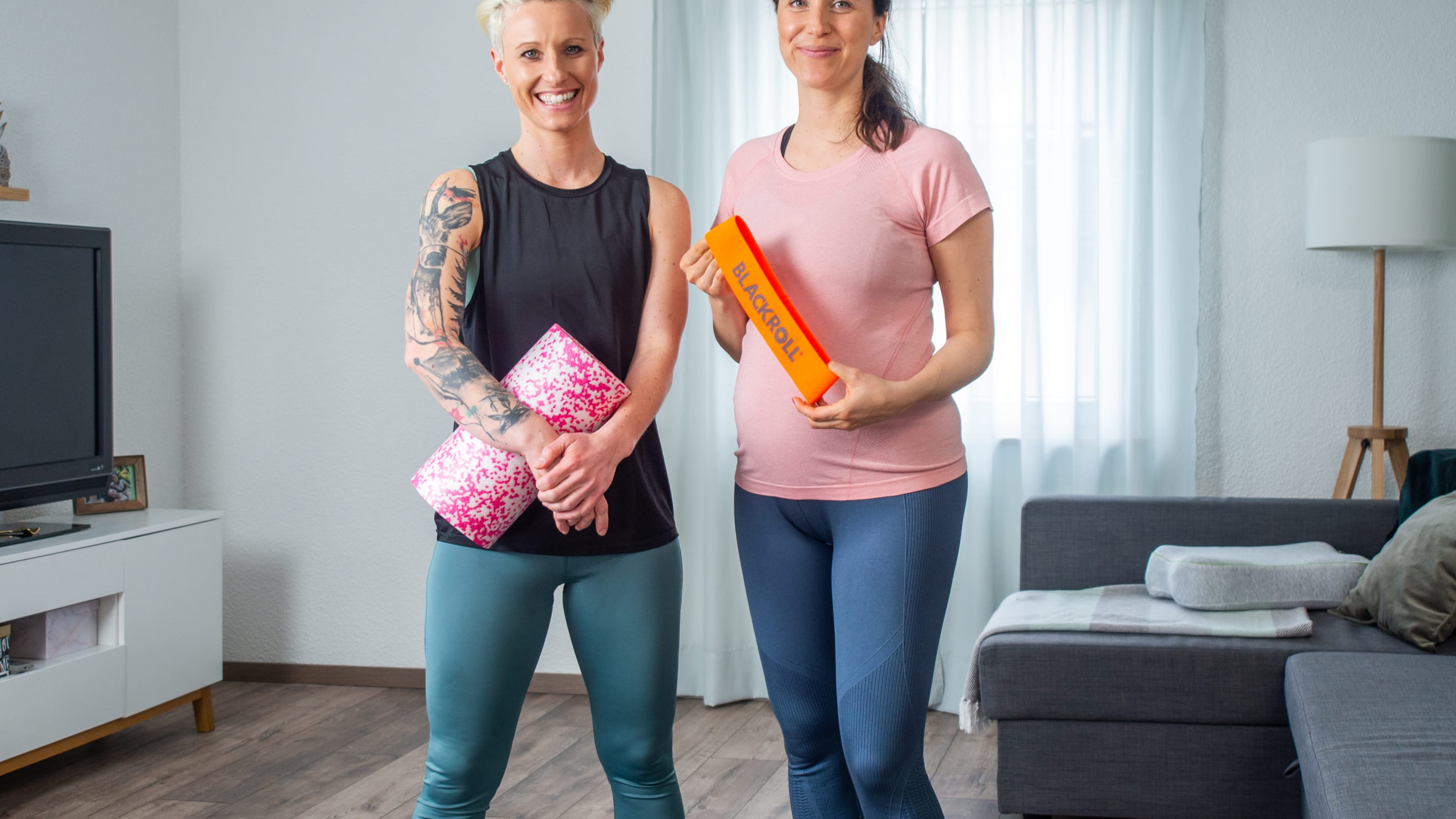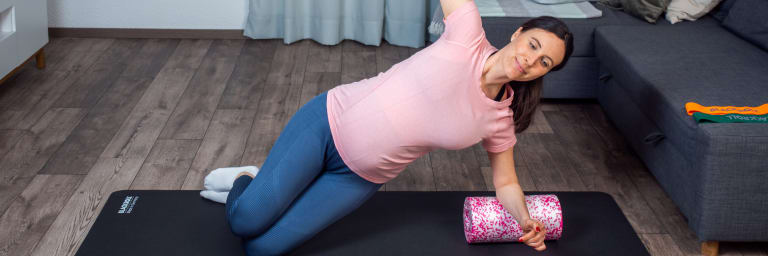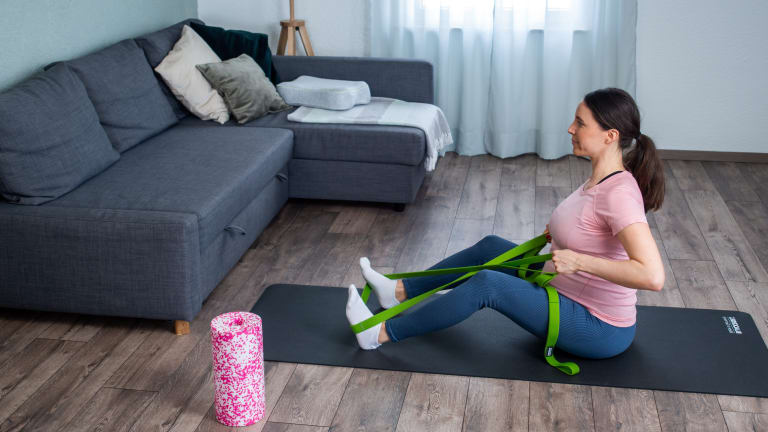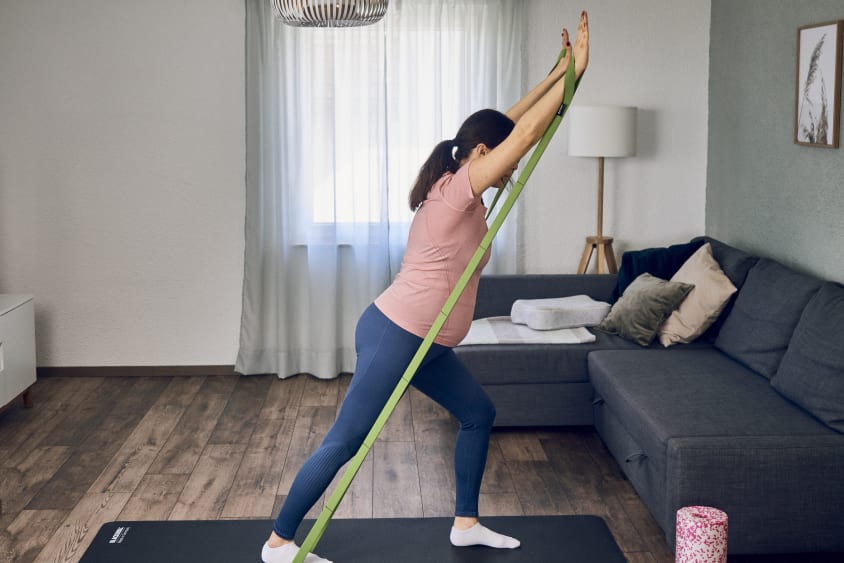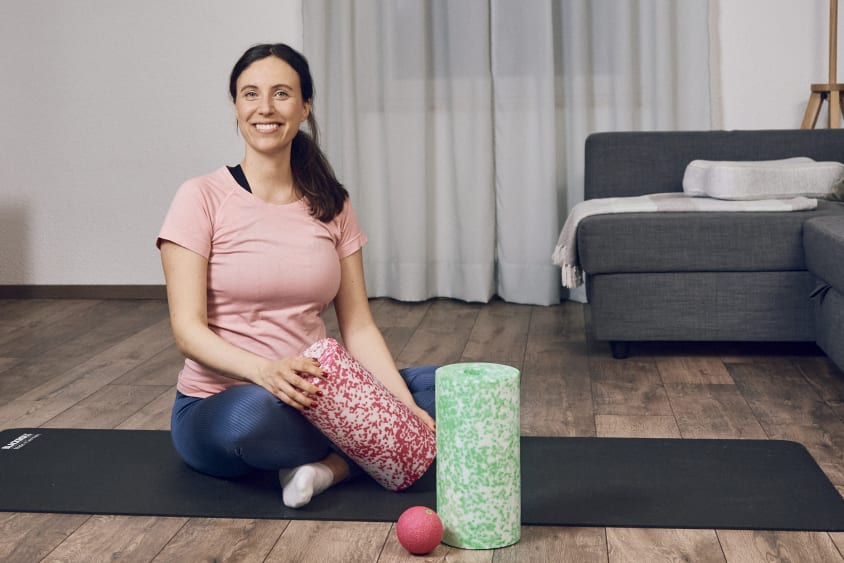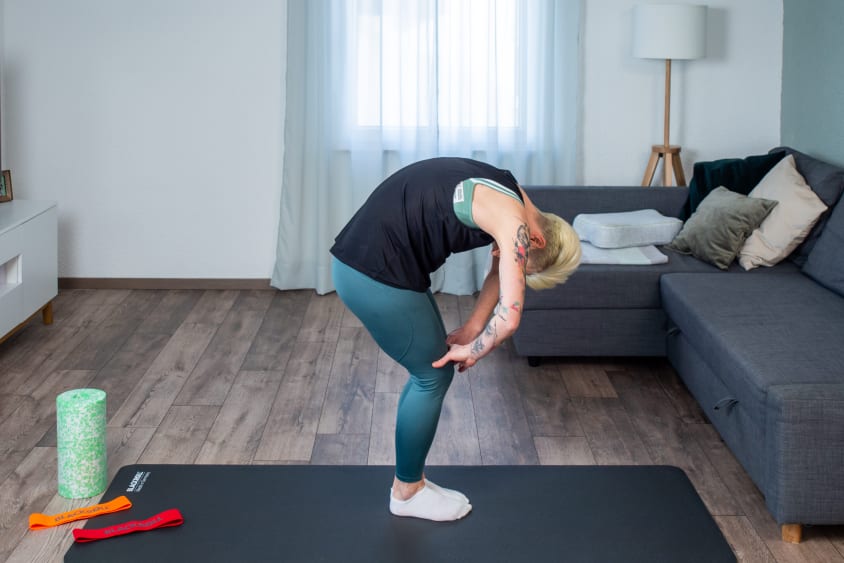Tina Hohloch
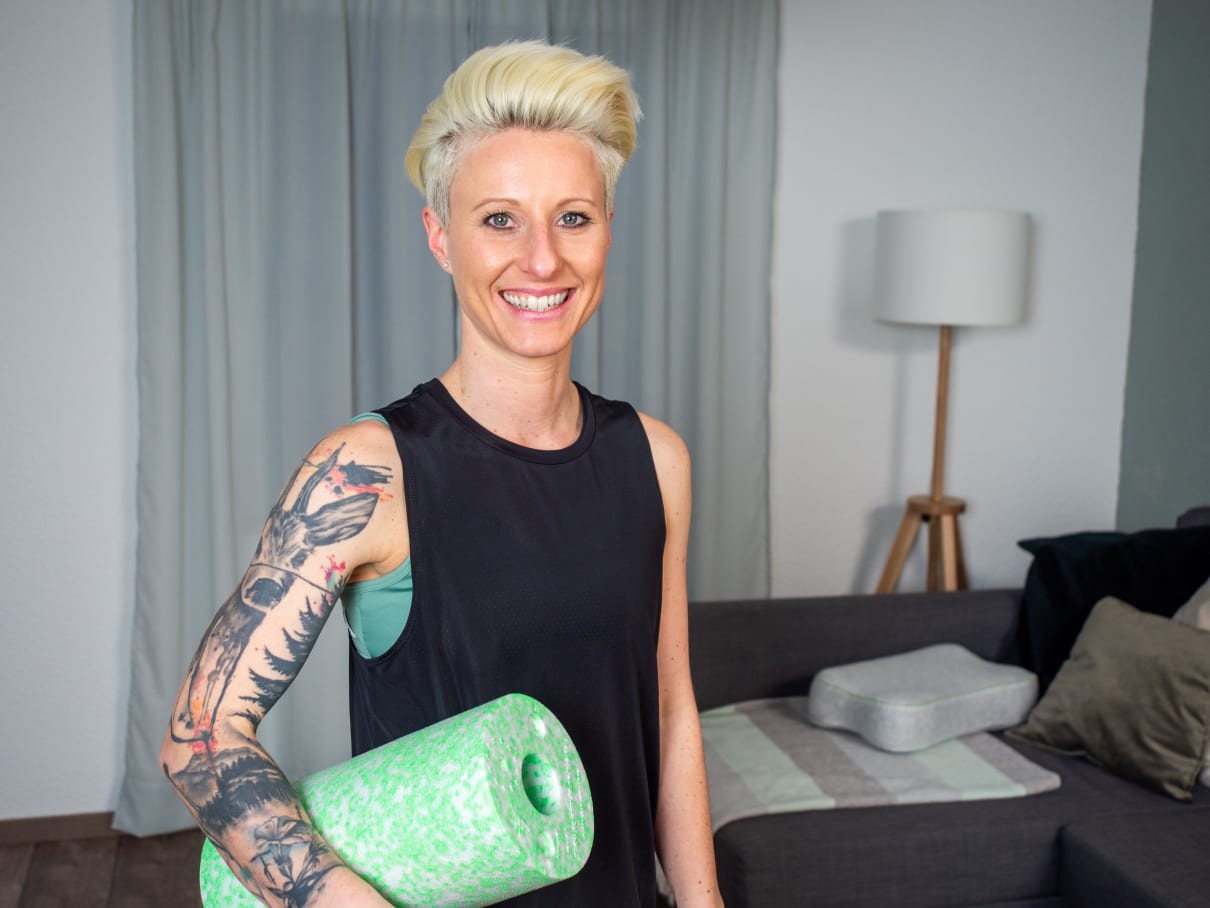
"Make healthstyle your lifestyle".
Tina has been a physiotherapist for many years and started her own practice in 2017 in the heart of Stuttgart's west. Through her osteopathic training, she is able to see people as a big whole. Thanks to years of experience in treating women before and after childbirth, she has developed a three-stage postnatal concept and also keeps women fit during pregnancy. Since 2016, she has been a BLACKROLL® master trainer and our expert in pre- and postnatal training.
In physical therapy, you don't just rely on passive treatment methods at the bench, but integrate sports and movement into your therapy and course program. As a physical therapist, why do you place so much emphasis on activity.
A lot of sitting in the office, home office and lack of movement in everyday life or even after pregnancy lead to dysbalances and tension in the muscles and fascial system.
Passive treatment methods are absolutely important and usually also the first step in my treatment setup after a thorough assessment.
However, I am of the opinion that a good treatment only promises long-lasting success if the muscular and fascial imbalance is addressed with active measures.
For this, good cooperation from the patient is absolutely essential. In order to keep the motivation for exercise up and to give my clients the opportunity to treat themselves, I very much enjoy using BLACKROLL® products. I am absolutely convinced of the variety and the quality and I am happy when I can pass on the possibility for self-training to others. I clearly associate physiotherapy with sports and exercise
Why did you specialize in the area of pregnancy?
During my training as a physiotherapist, I was able to enjoy very good teaching in the field of gynecology and very quickly this made me aware in my daily work of the importance of good regression, but also of training during pregnancy. Many women do not become aware of the effects of an imbalance of the trunk and pelvic floor until years after giving birth, or think that this condition is normal. These imbalances can lead to persistent back and hip pain, incontinence and descent problems a long time later.
